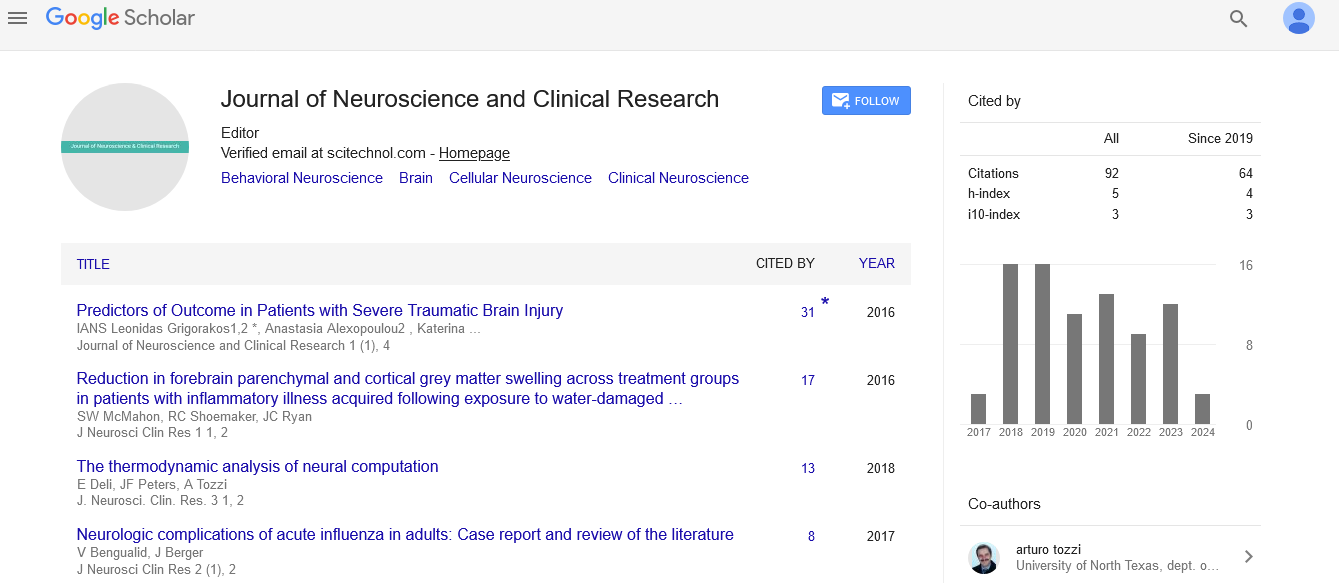Understanding brain Learning Disorders through control theory
M. Isabel García-Planas
Polytechnic University of Catalonia, Spain
: J Neurosci Clin Res
Abstract
One of the brain disorders that is little studied and that causes great damage to those who suffer from it is dyscalculia. The lack of study on this alteration means that many cases remain undiagnosed or misdiagnosed, and therefore remain untreated. That is why we set out to find a way to make a correct diagnosis for the correct treatment. In this sense, we have been able to prove that by performing a BAEP and analyzing wave VI, the presence or absence of a learning disorder can be objectified. Another problem that arises is that of the evolution of the disorder, for which a good tool could be the modeling of brain activity through dynamic systems. The dynamics of brain neural networks play a considerable role in cognitive function and are therefore of interest in the commitment to understanding learning processes and the evolution of possible disorders. Exposure to brain stimuli makes it possible to describe the neural activity, marking the neural networks that are specifically involved in the process. In this work, in addition to delving into how to make a correct diagnosis, the evolution and possible control of linear dynamic systems that model the process in order to infer it are analyzed, taking advantage of brain plasticity that can facilitate the control that allows improvement of the dysfunction.
Biography
María Isabel García-Planas received the PhD in Mathematics from Universitat Politècnica de Catalunya, Barcelona Spain, in 1995. She joined the Department of Mathematics at the Universitat Politecnica de Catalunya, Barcelona, Spain as associate professor in 1996. Her work had been centred on Linear Algebra, Systems and Control Theory and Neural Networks. She has authored over two hundred papers having been cited more than 700 times (more than 300 after 2015), and serves on the referee on numerous indexed scientific journals. She has been plenary Speaker in several International Conferences. María Victoria García-Camba graduated in Medicine and Surgery from the University of Barcelona in 1984 and Master in Cognitive Neuroscience from the Isabel I de Castilla International University in 2016, she also holds a Master's degree in Sleep: Physiology and Medicine from the University of Murcia in the year 2016 and in Medicine Evaluator and Medical Expertise, University of Barcelona in 2017. She practices her profession as an adjunct physician in the Department of Clinical Neurophysiology of the Corachan Clinic, also exercising her work as a neurologist at the Comprehensive Ophthalmological Institute. Currently, her research is focused on neuroscience and learning difficulties
 Spanish
Spanish  Chinese
Chinese  Russian
Russian  German
German  French
French  Japanese
Japanese  Portuguese
Portuguese  Hindi
Hindi 